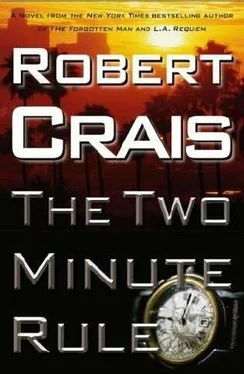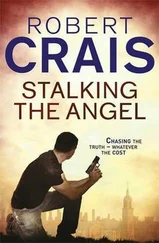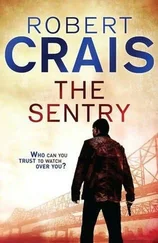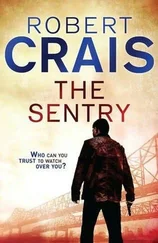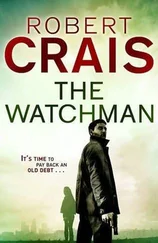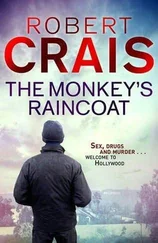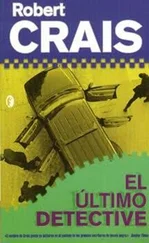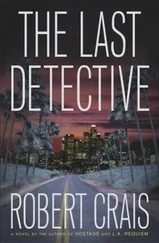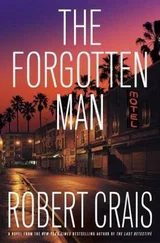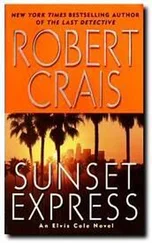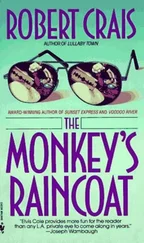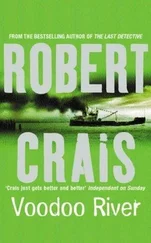“Sometimes it’s easier for a man to show what he feels is a weakness to another male rather than to a female. It’s easier to pretend it’s work than to deal honestly with the emotions. I think that’s what he did that night. I think that’s why he died.”
“Talking about me?”
“No, not you, not specifically-these bank robberies. That was his way of talking about you. The work was like an extra duty assignment. He wanted to be a detective and move up the ladder.”
Holman glanced at Richie’s desk, but he didn’t feel comforted. Copies of what looked like official police reports and case files were spread over the desk. Holman skimmed the top pages and realized that everything was about Marchenko and Parsons. A small map of the city was push-pinned to the board with lines connecting small X’s numbered from 1 to 13 to make a rough pattern. Richie had gone so far as to map their robberies.
Holman suddenly wondered if Richie and Liz believed he had been like them.
He said, “I robbed banks, but I never did anything like this. I never hurt anyone. I wasn’t anything like these guys.”
Her expression softened.
“I didn’t mean it like that. Donna told us how you got caught. Richard knew you weren’t like them.”
Holman appreciated her effort, but the wall was filled with clippings about two degenerates who got off by pistol-whipping their victims. It didn’t take a doctorate.
Liz said, “I don’t want to be rude, but I have to finish getting ready or I’ll end up blowing off class.”
Holman reluctantly turned away, then hesitated.
“He was working on this before he went out?”
“Yeah. He had been here all evening.”
“Were those other guys on the Marchenko thing, too?”
“Mike, maybe. He talked with Mike about it a lot. I don’t know about the others.”
Holman nodded, taking a last look at his dead son’s workplace. He wanted to read everything on Richie’s desk. He wanted to know why a uniformed officer with only a couple of years on the job was involved in a major investigation and why his son had left home in the middle of the night. He had come here for answers, but now had more questions.
Holman turned away for the final time.
“They haven’t told me about the arrangements yet. For his funeral.”
He hated to ask and hated it even more when the hardness again flashed across her face. But then she fought it back and shook her head.
“They’re having a memorial for the four of them this Saturday at the Police Academy. The police haven’t released them for burial. I guess they’re still…”
Her voice faded, but Holman understood why. These officers had been murdered. The medical examiner was probably still gathering evidence and they couldn’t be buried until all of the tests and fact-finding were complete.
Elizabeth suddenly touched his arm.
“You’ll come, won’t you? I would like you to be there.”
Holman felt relieved. He had been worried she might try to keep him away from the services. It also wasn’t lost on him that neither Levy nor Random had told him about the memorial.
“I would like that, Liz. Thank you.”
She stared up at him for a moment, then lifted on her toes to kiss Holman’s cheek.
“I wish it had been different.”
Holman had spent the past ten years wishing everything had been different.
He thanked her again when she let him out, then returned to his car. He wondered if Random would attend the memorial. Holman had questions. He expected Random to have answers.
THE MEMORIAL SERVICE was held in the auditorium at the Los Angeles Police Department’s Police Academy in Chavez Ravine, which was set between two hills outside the Stadium Way entrance to Dodger Stadium. Years earlier, the Dodgers erected their own version of the Hollywood Sign on the hill separating the academy from the stadium. It read THINK BLUE, the Dodger color being blue. When Holman saw the sign that morning it struck him as a fitting reminder of the four dead officers. Blue was also the LAPD color.
Liz had invited Holman to accompany her and her family to the service, but Holman had declined. Her parents and sister had flown down from the Bay area, but Holman felt uncomfortable with them. Liz’s father was a physician and her mother was a social worker; they were educated, affluent, and normal in a way Holman admired, but they reminded him of everything he was not. When Holman passed the gate to Dodger Stadium, he recalled how he and Chee had often cruised the parking lot for cars to steal during the middle innings. Liz’s father probably had memories of all-night study sessions, frat parties, and proms, but the best Holman could manage were memories of stealing and getting high.
Holman parked well off the academy grounds and walked up Academy Road, following directions Liz had provided. The academy’s parking lot was already full. Cars lined both sides of the street and people were streaming uphill into the academy. Holman glanced over their faces, hoping to spot Random or Vukovich. He had phoned Random three times to discuss what he learned from Liz, but Random had not returned his calls. Holman figured Random had dismissed him, but Holman wasn’t content with being dismissed. He still had questions and he still wanted answers.
Liz had told him to meet them in the rock garden outside the auditorium. The flow of foot traffic led him up through the center of the academy to the garden, where a large crowd of people stood in small groups. Camera crews taped the crowd while reporters interviewed local politicians and the LAPD’s top brass. Holman felt self-conscious. Liz had lent him one of Richie’s dark suits but the pants were too tight, so Holman wore them unfastened beneath his belt. He had sweat through the suit even before he reached the garden and now he felt like a wino in hand-me-down threads.
Holman found Liz and her family with Richie’s commander, Captain Levy. Levy shook Holman’s hand, then took them to meet the other families. Liz seemed to sense Holman’s discomfort and hung back as Levy led them through the crowd.
“You look good, Max. I’m glad you’re here.”
Holman managed a smile.
Levy introduced them to Mike Fowler’s widow and four sons, Mellon’s wife, and Ash’s parents. All of them seemed drained, and Holman thought Fowler’s wife was probably sedated. Everyone treated him politely and with respect, but Holman still felt conspicuous and out of place. He caught the others staring at him several times and-each time-he flushed, certain they were thinking, That’s Holman’s father, the criminal. He felt more embarrassed for Richie than for himself. He had managed to shame his son even in death.
Levy returned a few minutes later, touched Liz on the arm, then led them inside through open double doors. The floor of the auditorium was filled with chairs. A dais and podium had been erected on the stage. Large photographs of the four officers were draped with American flags. Holman hesitated at the doors, glanced back at the crowd, and saw Random with three other men at the edge of the crowd. Holman immediately reversed course. He was halfway to Random when Vukovich suddenly blocked his way. Vukovich was wearing a somber navy suit and sunglasses. It was impossible to see his eyes.
Vukovich said, “It’s a sad day, Mr. Holman. You’re not still driving without a license, are you?”
“I’ve called Random three times, but he hasn’t seen fit to return my calls. I have more questions about what happened that night.”
“We know what happened that night. We told you.”
Holman glanced past Vukovich at Random. Random was staring back, but then resumed his conversation. Holman looked back at Vukovich.
Читать дальше
